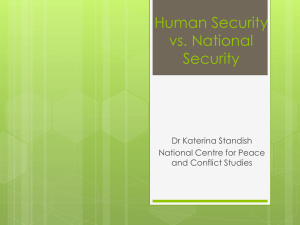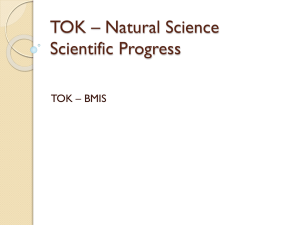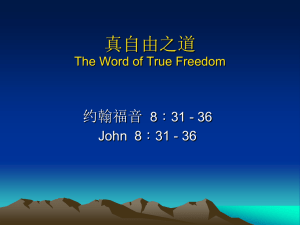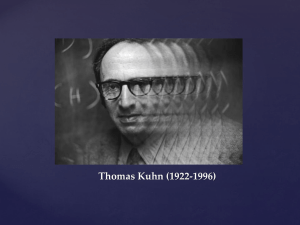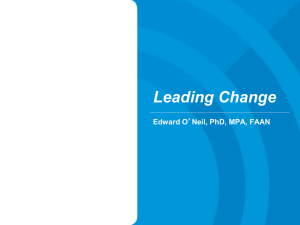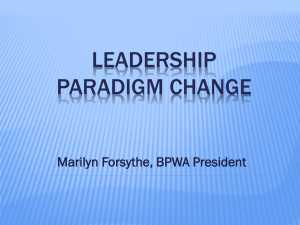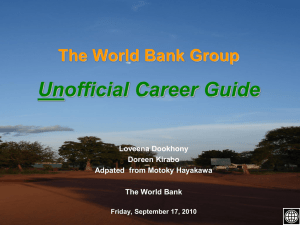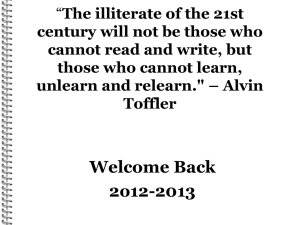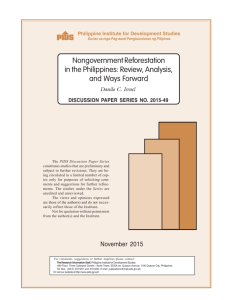SUSTAINABLE DEVELOPMENT: ENGAGING
advertisement
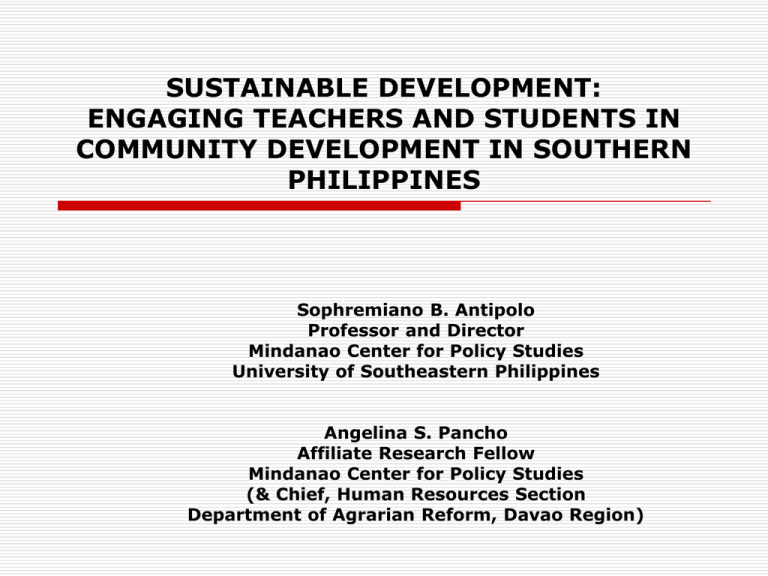
SUSTAINABLE DEVELOPMENT: ENGAGING TEACHERS AND STUDENTS IN COMMUNITY DEVELOPMENT IN SOUTHERN PHILIPPINES Sophremiano B. Antipolo Professor and Director Mindanao Center for Policy Studies University of Southeastern Philippines Angelina S. Pancho Affiliate Research Fellow Mindanao Center for Policy Studies (& Chief, Human Resources Section Department of Agrarian Reform, Davao Region) OUTLINE Evolving Sectoral and Spatial Devt Paradigms Highlighting “Sustainable Development” Review of the Brundtland Commission Report Philippine Agenda 21 UNESCO’s Convergent Move on ESD Engaging Teachers and Students in Community Development & Reforestation: The Philippine Experience Experiences in Life-long/Life-wide Education at the Natl Econ and Devt Authority (NEDA) Experiences at the University of Southeastern Philippines (USEP) Evolving Sectoral and Spatial Paradigms Highlighting “Sustainable Development” Industrial led-growth paradigm Agriculture-led growth paradigm National development paradigm Sub-national or regional devt paradigm Rural-urban linkage paradigm Sustainable development paradigm Focus: Sustainable Development Paradigm The Brundtland Commission defines “sustainable development” as development that meets the needs of the present without compromising the ability of the future generations to meet their own needs. Two concepts fundamentally linked to the process of sustainable development: 1. The Basic Needs of Humanity – for food, clothing, shelter, and jobs – must be met. This involves, first of all, paying attention to the unmet needs of the poor, which should be given overriding priority. 2. The limits to development are not absolute but are imposed by present state of technology and social organization and their impacts upon environmental resources and upon the biosphere’s ability to absorb the effects of human activities. But technology and social organization can be both managed and improved to make way for the new era of economic growth. Prerequisites for sustainable development 1. Reviving growth; 2. Changing the quality of growth; 3. Meeting essential needs for jobs, food, energy, water, and sanitation; 4. Ensuring a sustainable level of population; 5. Conserving and enhancing the resource base; 6. Re-orienting technology and managing risk; and 7. Managing environment and economics in decision making. In sum, the Brundtland Commission argues that the pursuit of sustainable devt requires: 1. A political system that secures effective citizen participation in decision making; 2. An economic system that is able to generate surpluses and technical knowledge on a self-reliant and sustained basis; 3. A social system that provides for solutions for the tensions arising from disharmonious development; 4. A production system that respects the obligation to preserve the ecological base for development; 5. A technological system that can search continuously for new solutions; 6. An international system that fosters sustainable patterns of trade and finance; and 7. An administrative system that is flexible and has the capacity for self-correction. A More Equitable International Economic System 1. The Development Squeeze; 2. Linking Trade, Environment, and Development; and 3. Sustaining sustainability. The Brundtland Commission Report: Issues and Recommendations 1. 2. 3. 4. 5. 6. Population and Human Resources; Agriculture and Food Security; Urban Human Settlements; Industrialization; Biodiversity and Ecosytems; and Managing the Oceans. Philippine Agenda 21: Towards Sustainable Development 1. The Current and Emerging Landscape for Sustainable Development; 2. The Conceptual Framework for Sustainable Development; 3. Elements of a Shared Vision; 4. Operational Framework and Action Agenda; and 5. Implementation of Philippine Agenda 21. UNESCO’s Convergent Move UNESCO took a convergent move to push for sustainable development in the context of “Education For All” grand alliance movement. It is contended that providing education facilities is only the beginning. Education must be improved in quality and in relevance to local and community development needs. In many areas, it should be integrated with children’s or youth’s participation in farm work, a process requiring flexibility in the school system. It should impart knowledge relevant for the proper management of local resources. Rural schools must teach about local soils, water, and the conservation of both, deforestation and how the community and the individual can reverse it. In short, education process must span the formal-nonformal-informal continuum. Thus, education must be considered a lifelong and life-wide process. When viewed this way, the development process will not ignore the needs of different ethnic / tribal groups and, in the process, education will not leave them vulnerable and subject to exploitation. Their traditional rights must be recognized, local institutions protected, and local communities must be given a voice in the decisions about resource use in their area. When this is done, real empowerment and participatory development process will be sustained. Engaging Teachers and Students in Community Devt and Reforestation Overall Country Experience Executive Order No. 303, series of 1973 The Student Assistance Center for Community Service and Reforestation National Seminar-Workshop of Students Leaders and Advisers at Teachers Camp in Baguio City Regional Seminar-Workshop on Community Service and Reforestation held in each of the regional capitals in the Philippines Narrative of experiences (as a Delegate of Xavier University) in Community Service and Reforestation: From the National Seminar-Workshop @ Teachers Camp, Baguio City From the Regional Seminar-Workshop @ YMCA Hostel, Cagayan de Oro City Echo Seminar –Workshop @ Xavier University, The Ateneo de Cagayan Summer Youth Civic Action Program (YCAP) Organization of Youth Community Service Club (YCSC) as an implementation of Re-entry Plan after the National and Regional SeminarWorkshop. Experiences as a NEDA Professional in Lifelong / Life-wide Education for Sustainable Development Continuing commitment in Summer YCAP advising summer interns at NEDA Regional Office; Sustained cooperation as Honorary Adviser to Youth Community Service Clubs (YCSCs) as a Regent/Trustee of state universities and colleges in Mindanao (as Regional Director in Region IX) Experiences @ the University of Southeastern Philippines (USEP) 1. As Professor-in-Charge of a PhD Course on Environment and Natural Resource Policy 2. As Director of MCPS in coordination with Research, Extension and Lifelong Center (Continuing Education Center) 3. Collaboration with Teachers’ Training Center in Mindanao 4. Coordination with the Office of Student Affairs (OSA) for Youth Community Service Club Chapter in USEP. THE END THANK YOU!

